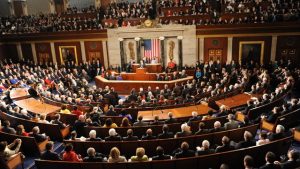(Akiit.com) Congress needs to learn to do a better job of writing laws. That’s my conclusion after reviewing the legal debate over whether the Supreme Court should renounce the Chevron doctrine it unanimously promulgated (with three justices not participating) back in 1984.
What is the Chevron doctrine, and why does it matter? It arose out of a Clean Air Act case and hinged on whether the court must accept a regulatory agency’s interpretation of an ambiguous statute passed by Congress. Yes, said the court. Once the court found the statute (a provision of the Clean Air Act) ambiguous, it must accept the interpretation of the agency (the Environmental Protection Agency) if it is “based on a permissible construction of the statute,” even if the judges think it’s wrong, even if the agency has, after a change in administration, changed its interpretation, as it had in Chevron.
What’s wrong with that? The argument is that it makes us subject to laws not passed by Congress and signed by the president but to regulations handed down by unelected, undemocratic bureaucrats. “Chevron,” writes my American Enterprise Institute colleague Peter Wallison in his 2018 book, “Judicial Fortitude,” “permits agencies to take on the role of Congress.”
Similarly, in his just-published book “A Republic, If You Can Keep It,” Justice Neil Gorsuch writes, “By transferring more and more power from the legislature and judiciary to the executive, we alter piece by piece the framers’ work and risk the underlying values it was designed to serve.”
Note that Gorsuch replaced the late Justice Antonin Scalia, who repeatedly supported and invoked Chevron — and that the EPA regulation the court upheld was issued when Anne Gorsuch, the justice’s mother, was EPA director.
Justice Gorsuch’s criticism of the precedent strikes me as strong. “In the Administrative Procedure Act, Congress vested the courts with the power to ‘interpret … statutory provisions,'” he wrote as an appeals court judge. Chevron, he went on, “seems more than a little difficult to square with the Constitution of the framers’ design.”
Chief Justice John Roberts seems to have similar concerns. In a dissent in Arlington v. FCC in 2013, he quoted the warning in “Federalist No. 47” against the “accumulation of all powers, legislative, executive, and judiciary, in the same hands” and concluded that “the danger posed by the growing power of the administrative state cannot be dismissed.” Justices Kennedy and Alito concurred.
Similarly, in 2015, Justice Clarence Thomas decried “a vast and unaccountable administrative apparatus that finds no comfortable home in our constitutional structure.” Do a little counting and, if you assume that Justice Brett Kavanaugh agrees with Justice Kennedy, whom he clerked for and replaced, you come up with five possible votes to overturn or hamstring Chevron. The administrative state would have its power constrained.
Would that create problems? “We managed to live with the administrative state before Chevron. We could do it again,” writes Justice Gorsuch. Citing Obamacare, the Dodd-Frank finance regulation and the 2017 tax law, Wallison assures us that “Congress can get complex things done.”
I wonder. Those bills passed when one party held the presidency and majorities in both houses of Congress, which has been the case for only 10 years and a few months of the last 25 years of close partisan competition. More important, some existing administrative interpretations of these laws might not pass muster in a post-Chevron world.
Also, many Democrats are uncomfortable with President Trump’s use or abuse of discretion provided by vague statutes — as many Republicans were with Obama’s and would be with a Democratic successor. Thus presidents have used the 1976 National Emergencies Act 59 times but with little criticism until Trump invoked it to build his border wall.
Thus Trump’s use of administrative delegation in Section 232 of the 1962 trade act to increase tariffs suddenly has produced unease, despite similar implementation by pro-free trade predecessors since the legislation’s 1933 predecessor. There’s talk of limiting the administration’s discretion.
This delegation to the executive was prompted by the 1930 Smoot-Hawley Tariff Act, widely believed to be a cause of the Great Depression. It passed after 527 hours of Senate debate on some 1,253 amendments. Congress didn’t want to do that ever again.
A post-Chevron Congress might have to learn how. And not just during occasional intervals of one-party control. The era of passing laws vaguely promising all good things and punting the details to administrators may be ending. Congress might have to learn to write laws again.
Columnist; Michael Barone
Official website; http://twitter.com/michaelbarone








Leave a Reply